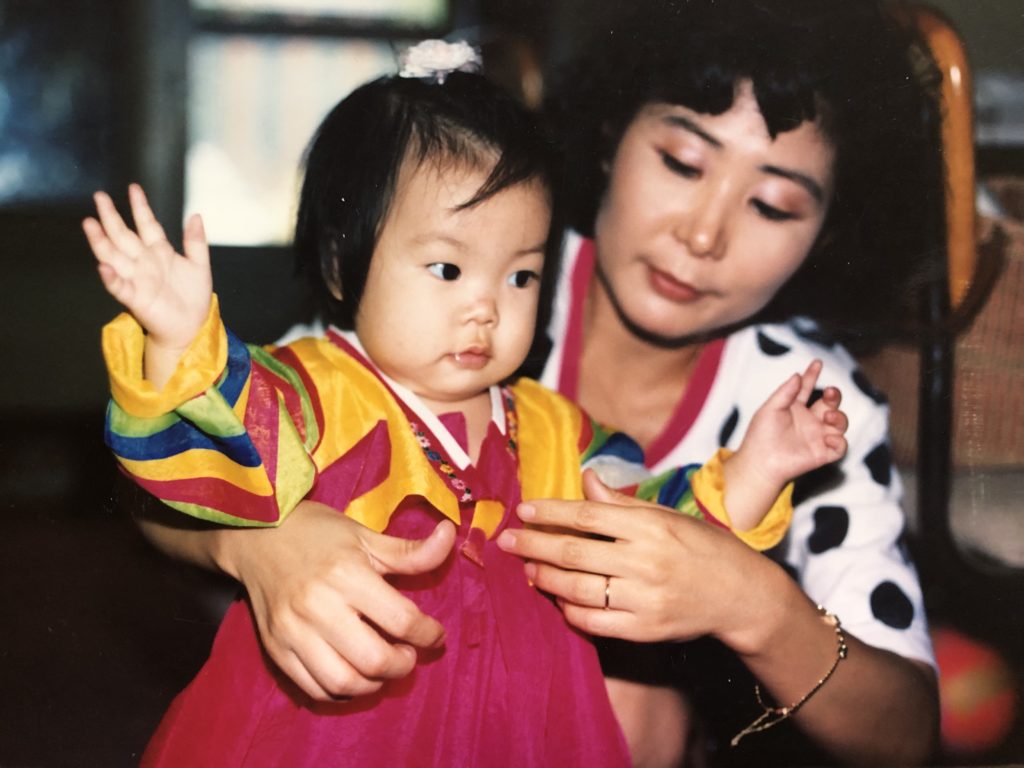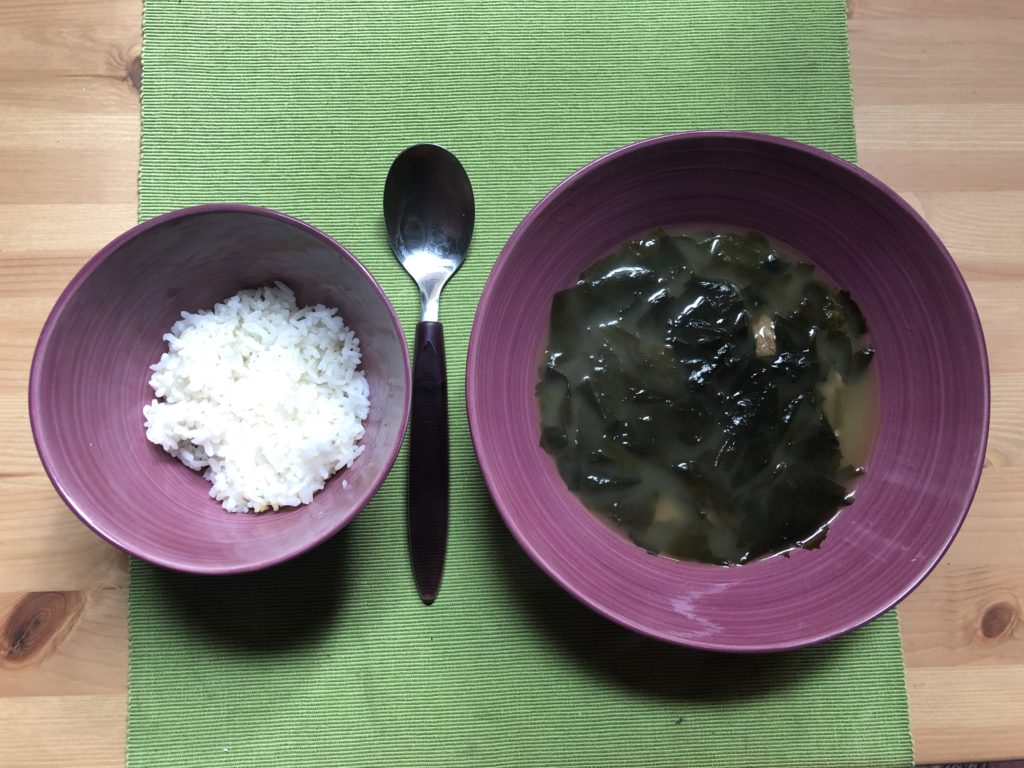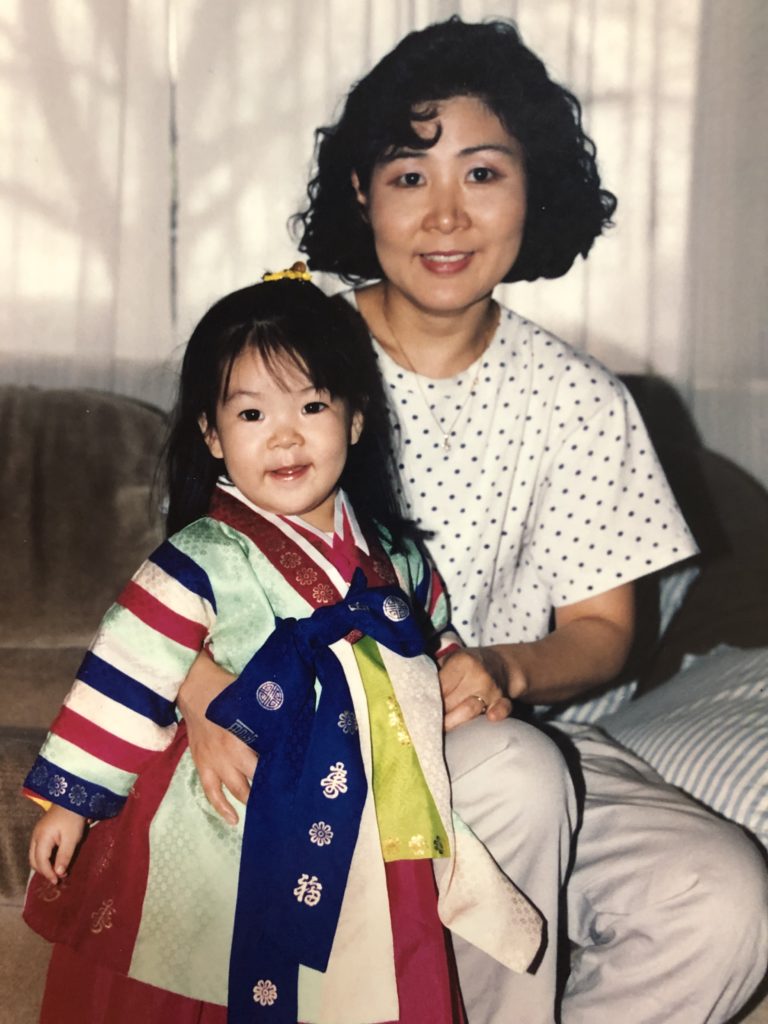One hot morning in Daegu, South Korea, I woke up to the soft whir of the fan that had been on all night and the faint noise of pots and pans clanging in the kitchen. I walked out to my grandmother’s living room where my father was watching TV; he silently pointed to the kitchen, where my mother and her mother were preparing Korean seaweed soup, miyeok gook, for breakfast on my 26th birthday.

A 26th birthday is not a remarkable one, even in Korea. But it was for me and my mom because it was the first time in years we’d celebrate my birthday with a bowl of miyeok gook, together.
Miyeok gook is eaten on one’s birthday in Korea because it is the customary meal after a woman gives birth — the nutrients in seaweed help with postpartum recovery. After that, a mother usually makes the soup, consisting of seaweed, beef and garlic and served with rice and side dishes, on her child’s birthday, so the whole family can celebrate and commemorate the birth.

Growing up, my favorite soup was miyeok gook, and we would have it often, even on ordinary days. When my mom made it on my birthday, July 3, I didn’t think much of it, other than being excited to have it with my favorite side dishes like bulgogi, thin marinated slices of beef, and japchae, stir-fried vermicelli noodles. It wasn’t until college, after my mom moved to Korea while I stayed in Michigan, that I learned the cultural significance of this dish — and realized I had been taking it for granted all these years.
Fast forward to my post-college life in New York City, where I work a full-time job without summer breaks and the flexibility to travel home. For six years, I spent my birthdays with friends who made me feel so loved — one year, an ex-boyfriend even tried to recreate the soup for me — but couldn’t quite fill the void.
Then came summer 2016, when I worked out a deal with my boss to take three weeks off so I could celebrate my mother’s 60th birthday, a milestone just a week after my 26th. Turns out I had unintentionally — well, maybe somewhat intentionally — scheduled this trip so I could also satisfy my craving for birthday miyeok gook.
We went to my grandmother’s in Daegu the night before my birthday. My grandmother, who suffers from mild Alzheimer’s, was delighted to see me, though I’m pretty sure she didn’t remember when we were last together or that it was my birthday. When my mom reminded her, she asked if I was turning 21. When I corrected her, she gasped, saying in Korean, “you need to get married soon!”

The next morning, we had what we usually have for breakfast in Daegu: lots of ordinary, plant-based side dishes like blanched spinach in sesame oil, bean sprouts and of course, kimchi, accompanied by gaeran mari — the Korean version of an “egg roll” made of scrambled eggs and scallions rolled up into a log — with rice and soup. But the soup on this day deviated from the usual few in rotation: radish, dwenjang, or bean paste, and kimchi. To celebrate my birthday, we had my grandmother’s signature miyeok gook, the inspiration for my mother’s recipe and for my version, someday. There we were at the table, three generations of women, plus my father, enjoying the soup that symbolizes appreciation for mothers.
“Happy birthday, my daughter,” my mom said, more heartfelt than in past years.
Almost three years have passed since then, and we have yet to have another chance to eat together on my birthday. With my grandmother fast approaching 90 and her Alzheimer’s symptoms worsening, it seems unlikely that we will have another birthday breakfast together. We’ll just have to wait until it’s my turn to make the soup for my future child for the next three-generation miyeok gook celebration — whenever that may be.
Tags: Korean, seaweed soup, soup, what we savor
Your Comments